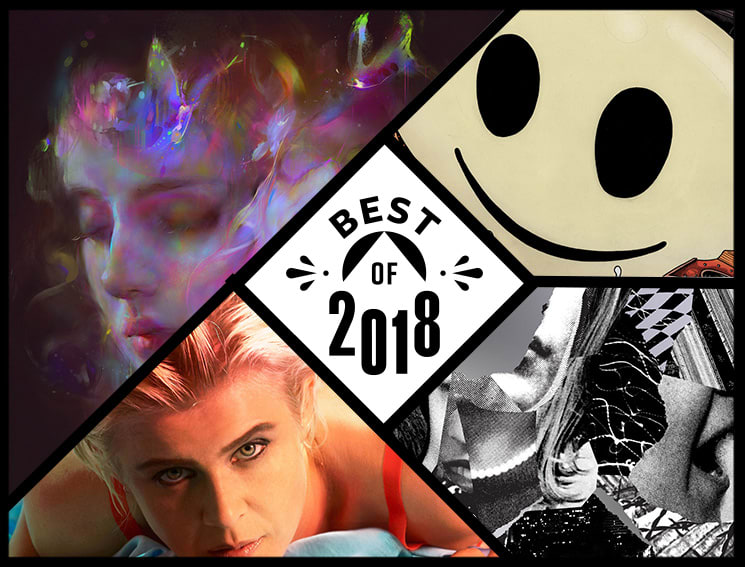You waited, and it's here: today (December 5), we're counting down the Best Pop & Rock Albums of 2018, from 10 to 1. We kicked things off yesterday (December 4) with our Top 20 Pop & Rock Albums, 20 through 11, and now we're wrapping it up;
Over the next two weeks, Exclaim! will be rolling out our annual, genre-specific album lists for the Best of 2018 including the best of folk and country and the best metal and hardcore.
Top 20 Pop & Rock Albums of 2018, 10 to 1:
10. Low
Double Negative
(Sub Pop)
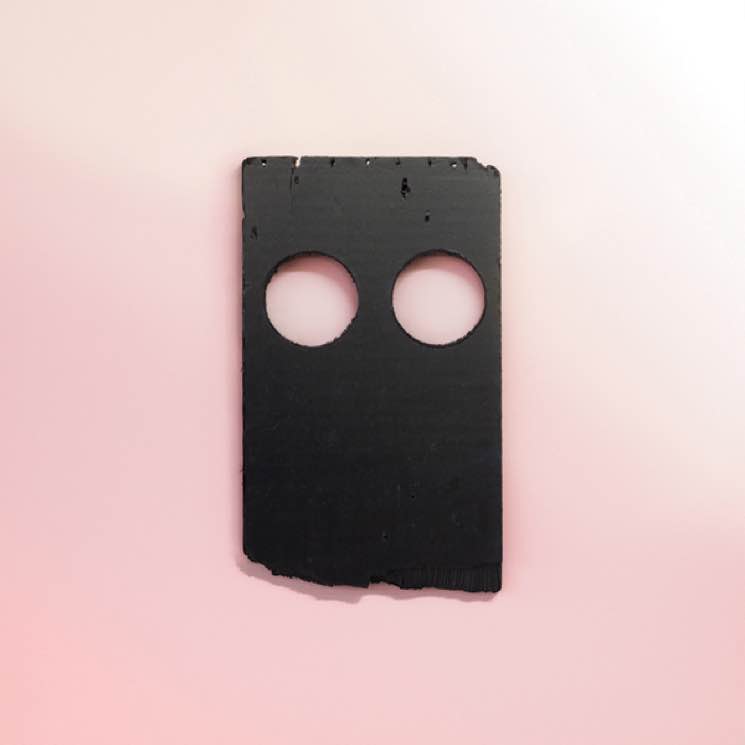
Minnesota juggernaut Low waited until their 25th year of existence before transmogrifying their genetic code as substantially as they have with Double Negative, their 12th album. It's apparent immediately with the transfixing triptych of "Quorum," "Dancing and Blood" and "Fly" that the band are working in a defiantly experimental mode, disfiguring their signature melodies by wrapping them in a womb-like cocoon of bombast and decay. This is a statement as powerful as it is profound.
The album itself is a two-year long collaboration with producer BJ Burton, who's as responsible as Low are for the blown-out beauty of this ferocious exercise in studio-based songcraft. For all of its primordial fervour, Double Negative is maintains enough of the band's sonic identity to deftly navigate the sea of chaos and keep the ship upright. This is a rapturous song cycle, the product of exquisite talent that has achieved something truly remarkable.
Bryon Hayes
9. Yves Tumor
Safe in the Hands of Love
(Warp)
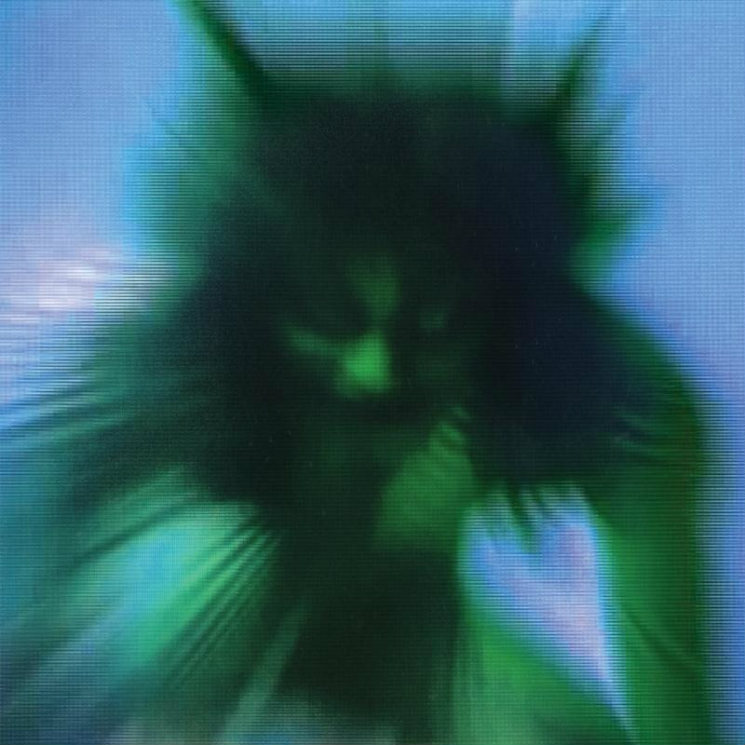
Yves Tumor is as much a mystery as a musician. Since his early contributions to projects from NON WORLDWIDE and Mykki Blanco, the artist (allegedly) named Sean Bowie has proven elusive in both style and persona. So it's something of a surprise that Tumor's Warp Records debut is both accessible and bracingly direct.
Overwhelmed with such weighty topics as codependence and police brutality, Safe in the Hands of Love is a desperate plea for connection amid psychological and political turmoil. Its broad musical vocabulary spells everything out in a variety of ways — techno beats that pump like pistons ("Honesty"), string-sampling alt-rock ("Noid") and melancholic acoustic guitar ("Recognizing the Enemy") — but the vocals are its most expressive flourish. Crying out for lost brothers on "Lifetime," Tumor's singing is stirring in its vulnerability. The musician behind it all may remain inscrutable, but Safe in the Hands of Love more than suffices as a defining statement.
Matthew Blenkarn
8. Blood Orange
Negro Swan
(Domino)
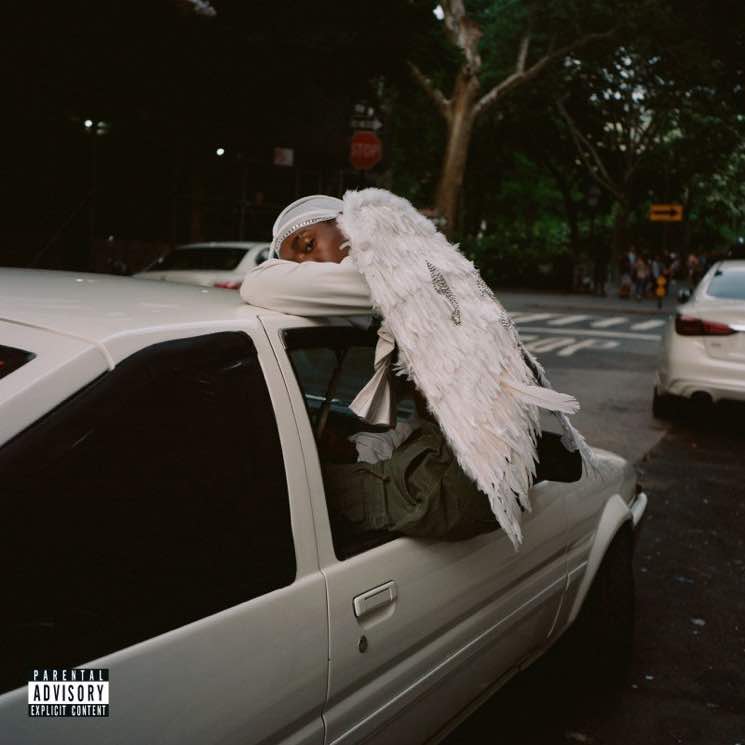
Blood Orange (aka Dev Hynes) employs dynamism like few others. As a songwriter, producer, director and performer, he's an artist that fluidly becomes both the symptom and a panacea to the anxiety that comes with the everything-all-at-once time we exist in. Negro Swan is an important album; here, Hynes zooms in on his disinherited self to reflect on a nerve-wracked, complicated society and articulates his experience through a gorgeously evolving sonic atmosphere, drifting through luscious jazz, charismatic indie, erudite hip-hop and poignant R&B.
Peppered throughout is activist Janet Mock, who appears in spoken word snippets that lend lucidity to Hynes' introspection. Coming from Hynes' self-described thought process as a bunch of "open browser tabs," Negro Swan is an existential, empowering album, a beautiful stream of conscious work of art for an infinitely scrolling generation.
Levi Manchak
7. Janelle Monáe
Dirty Computer
(Wondaland)
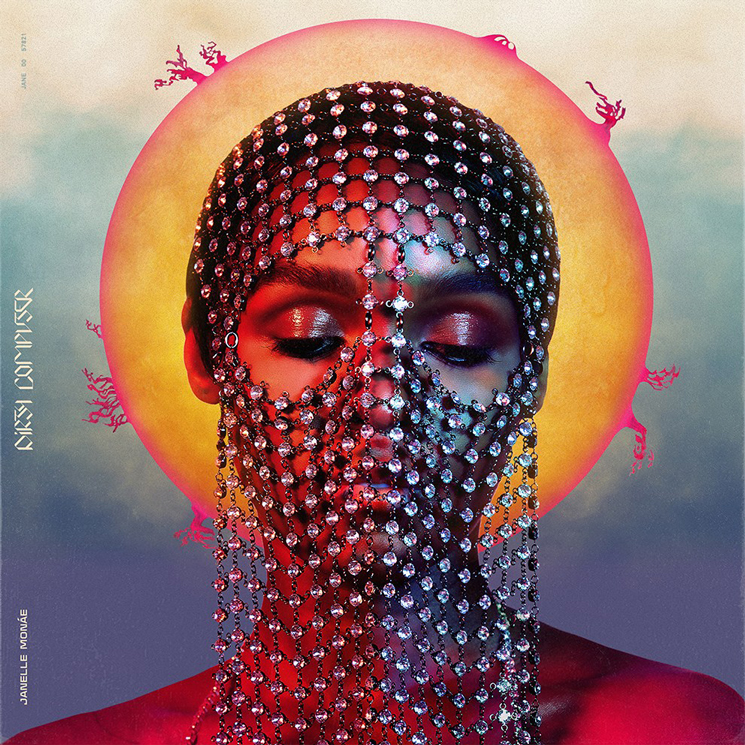
As with everything Janelle Monáe does, Dirty Computer is defined by her exacting standards and specifications. Yet, no longer constrained by her formerly ubiquitous black and white tuxedos or beholden to Fritz Lang-meets-Southern Belle android personification, her third album sets her programming free to create the innovative pop record that she was destined to create.
Dirty Computer finds Monáe at her most human, speaking freely on sexuality, self-determination and liberation of the "highly melanated" — yet feeling fully accessible for all. Much like her late mentor Prince, there's a genre fearlessness that weaves its way across tracks like the sensationally provocative "Pynk," the anthemic "I Like That" and the scorching, funky "Make Me Feel." Bolstered by savvy appearances by music stalwarts Brian Wilson, Pharrell Williams and Stevie Wonder, Monáe knows where she stands in the music continuum and continues to forge ahead, fearlessly, towards greatness.
Ryan B. Patrick
6. Let's Eat Grandma
I'm All Ears
(Transgressive)
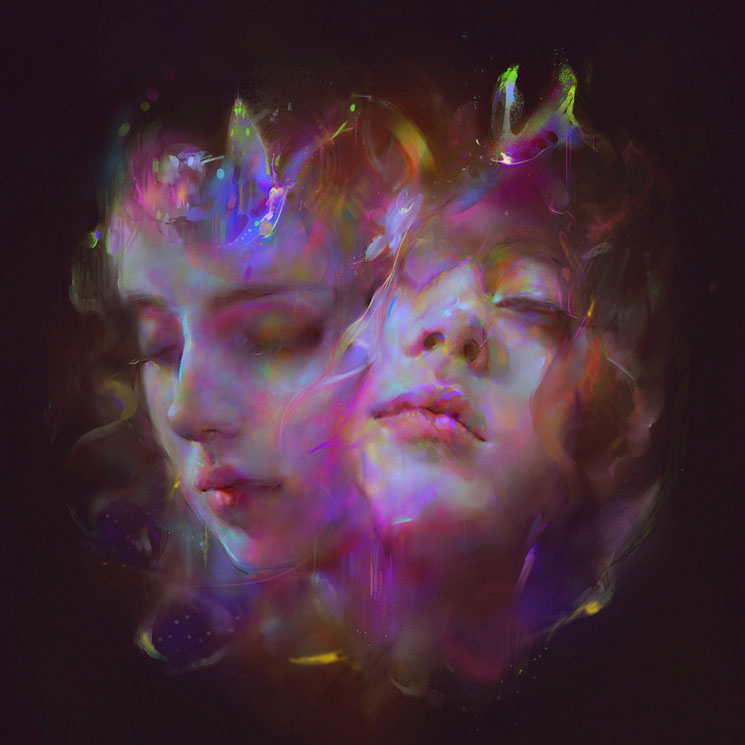
On Let's Eat Grandma's darkly radiant second album, the UK psych-synth duo make their atypical pop resonate with uncommon emotional intelligence. Rosa Walton and Jenny Hollingworth have a knack for how messy human moments actually feel; as a result, I'm All Ears spins ever-inventive instrumentation and lyrical prowess into luminous spirals of sound.
"Hot Pink" glides in on neon synths, slyly questioning gender roles before abruptly jackknifing into a combustive, mechanical crunch of a chorus. "Falling Into Me" pulses with the tension between longing and affirmation. Opener "Whitewater" could pass as the overture for a spooky space castle, while "Donnie Darko" uses its 11-minute runtime to conclude the album in a swirling, surreal slow-burn. I'm All Ears is unpredictable pop at its best: perplexing and affecting in equal measure.
Paul Blinov
5. Fucked Up
Dose Your Dreams
(Arts & Crafts/Merge)
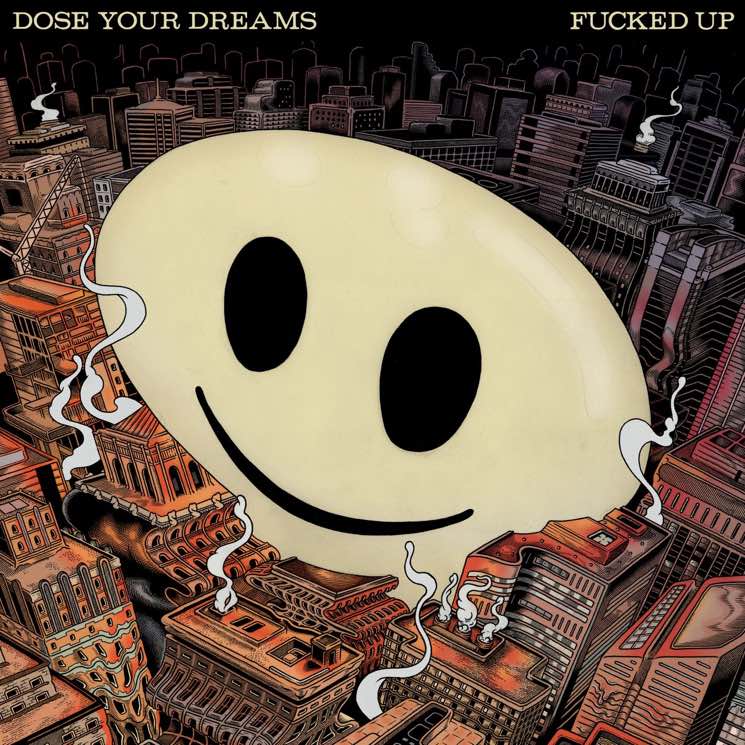
For about as long as Fucked Up have existed, the Toronto band have strived to push the boundaries of what punk music is and what it can be. Implausibly, their fifth record is possibly their most visionary and pulse-raising record to date — but almost definitely their most fun.
For a band with a history of expansive, exploratory rock operas, to outdo themselves is no easy feat, but after having already made one de-facto magnum opus, David Comes to Life, they decided to make another one. The result is maximalist art-rock that assembles a mishmash of genres and sounds, with the common thread being the search for creative bliss. Radical, ambitious and complex, it's a weird and wild prog-punk odyssey that can hang with the likes of similar-minded touchstones The Shape of Punk to Come and Relationship of Command.
Adam Feibel
4. Beach House
7
(Sub Pop)
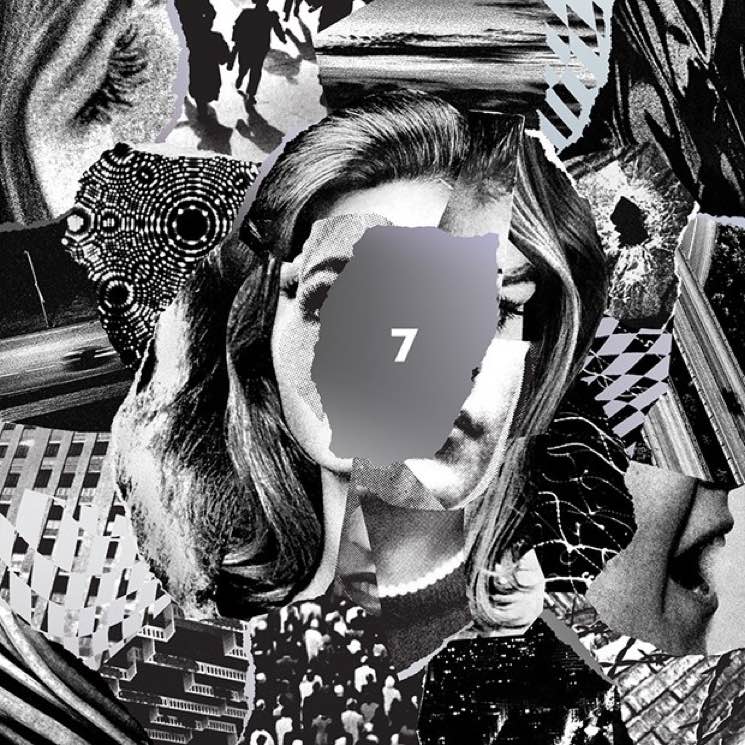
Beach House have been slowly refining and further exploring their dream pop sounds for over a decade now, and while it has some of music's vibe-thirsty artists taking notice, the duo found room for some successful experimentation with this year's 7. In an essay, Victoria Legrand and Alex Scally wrote that 7 concerns "the beauty that arises in dealing with darkness" in a thematic sense — and its sounds feel expertly matched.
It's apparent from the opening drum fill of "Dark Spring," whose many layers are juxtaposed expertly by the loving lilt of "Pay No Mind." Darkness and light are further set against one another when the hopeful glow of "L'Inconnue" shifts to the stark "Drunk in L.A.," while the pummelling climax of "Dive" is set against the uneasy "Black Car."
Though Legrand told Exclaim! earlier this year that "the older we get, the less of a fuck we give," 7 is refreshing, resonant, and heaps more than an effortless rehash.
Calum Slingerland
3. Mitski
Be the Cowboy
(Dead Oceans)
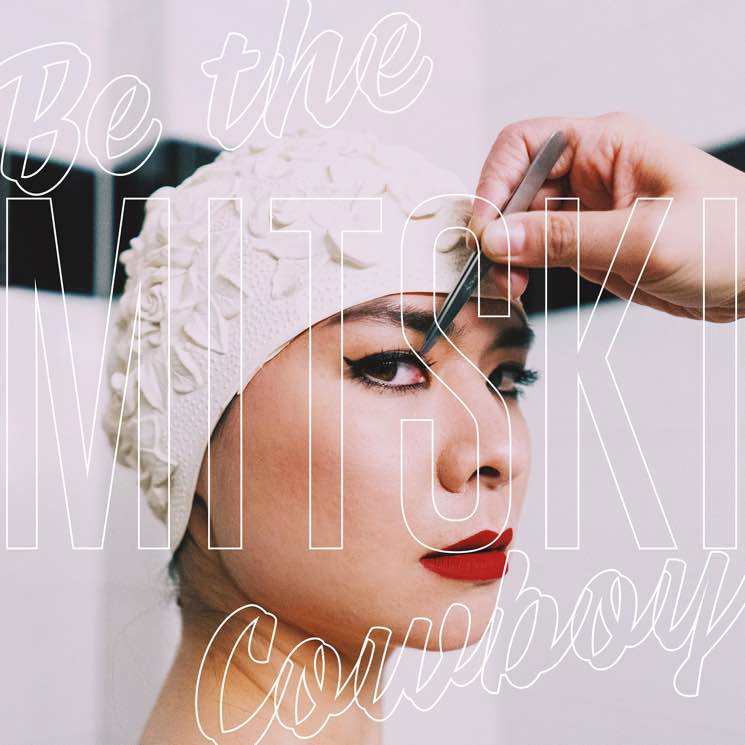
Mitski's last album — the acclaimed Puberty 2 — was steeped in roiling emotion and softly pulsating vulnerability. Bouncing from distorted guitar riffs to short, punk-infused tracks, to tender, dreamy pop, it found Mitski at her best — that is, until this year.
On Be the Cowboy, Mitski once again tackled the complex themes of love, loss, loneliness and isolation, but this time she stripped each element to its core. Her compositions here are sharper, her clear voice is more confident and her lyrics are even more searing as she grapples simultaneously with unrelenting imposter syndrome and being thrust into a newfound life of fame and sold-out tours.
On "Remember My Name," she explains how she "gave too much of my heart tonight; can you come to where I'm staying and make some extra love that I can save till tomorrow's show?" The reverberating "Blue Light," meanwhile, sees her "going crazy, walking 'round the house naked." On the country-infused "Lonesome Love," she explains how "nobody butters me up like you, and nobody fucks me like me," while the album's heaviest track, "A Pearl," is an ode to inescapable toxic relationships.
With all 14 songs coming in at just 32 minutes, Mitski wastes no time getting to the point. Rousing and brilliantly produced, Be the Cowboy is a deeply personal album that taps into the universal human condition.
Courtney Baird-Lew
2. Robyn
Honey
(Konichiwa)
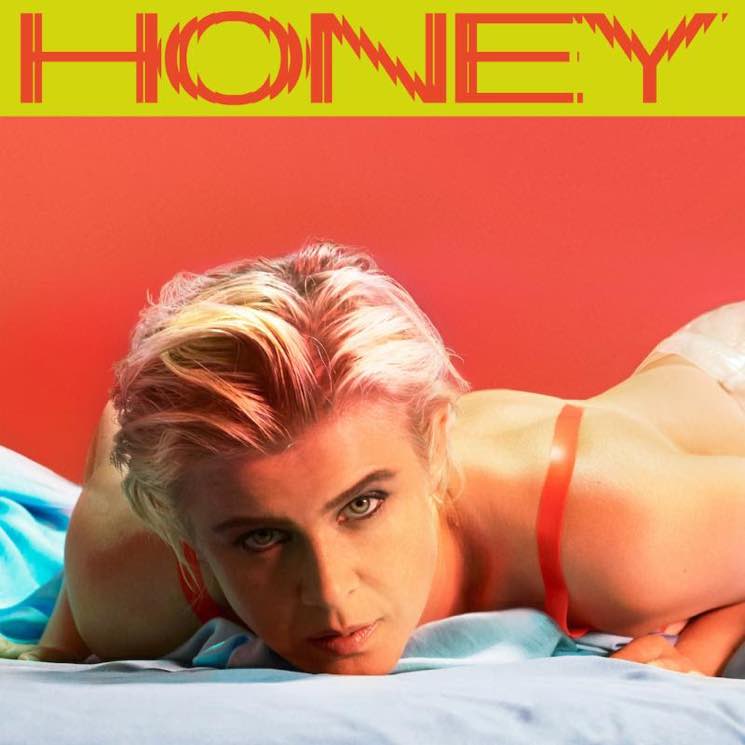
If anyone knows that love is hard work, it's Robyn. On 2010's Body Talk, she danced on her own; worked at being indestructible; and urged us to undergo the hard task of calling one's significant other, to be honest without being cruel — difficult stuff, certainly, but that record's sweeping, disco ball-lit production helped make triumphant dance floor anthems out of those complex emotions. On Honey, the moments of thumping, four-on-the-floor ecstasy are fewer and further between, but though the last eight years have been hard on her — she both lost a close friend and navigated a tumultuous breakup — Robyn has far from given up on love.
Both sonically and lyrically, Honey is closer, more intimate. The production, elegant but sparse, is pared down here, and the cast is too: there are no girlfriends, no "he" or "she" to be found on Honey; only "I" and "me" and "you." Here, Robyn makes the universal feel specific and vice-versa, all by freezing and isolating intimate moments and sentiments between yous and Is: one's fading scent on a pillow on "Missing U"; a shared memory captured and evoked forever by a song on "Because It's in the Music"; the way a text can make one's heart jump on "Between the Lines."
Wiser and a little world-wearier than its predecessor, Honey is a moving yet unsentimental set of communications, a realist's take on the ongoing importance of love in a world that urgently needs it. "If you got somebody to love," she sings gently but urgently on "Send to Robyn Immediately," "give that love today."
Stephen Carlick
1. U.S. Girls
In a Poem Unlimited
(Royal Mountain/4AD)
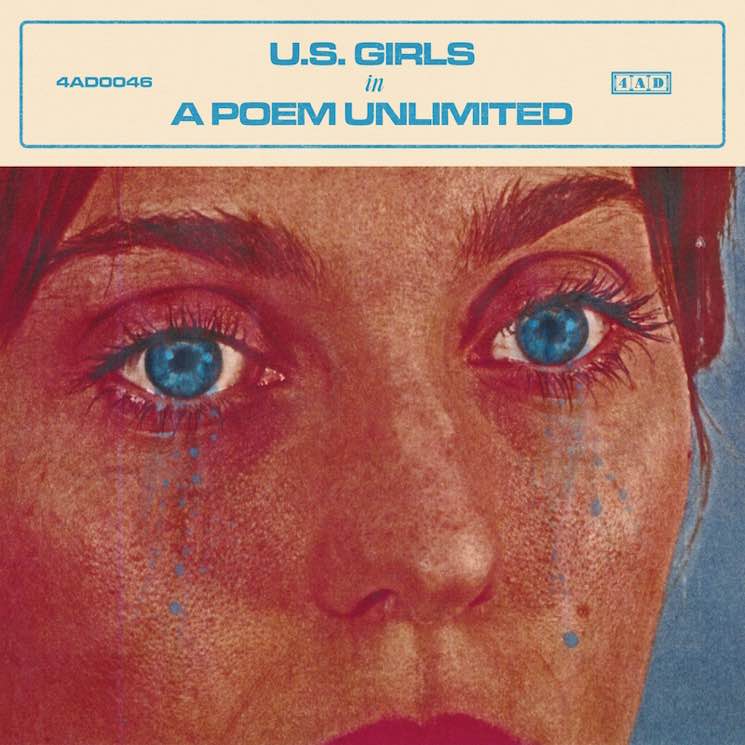
Our dystopian modern times didn't just emerge from a cloud of Cheeto dust and right-wing populism a few years ago. Meg Remy would know: the Toronto-based artist has been railing against patriarchy and socio-political tension for over a decade as U.S. Girls. It was only a matter of time before her incendiary brand of avant-pop collided with the zeitgeist.
And what a collision it was. In a Poem Unlimited finds Remy and her many collaborators making dance music for these apocalyptic times, setting Remy's scorched storytelling to globs of disco and funk. It gives U.S. Girls' typically rambling, abrasive sound a groove-laden makeover, keeping the cacophony but trading in the loops and lo-fi production for saxophones and studio slickness.
It all serves to highlight Remy's strong lyrical voice as she weaves resonant, high-concept narratives through the urgent, intricate instrumentation. "Pearly Gates" imagines a predatory Saint Peter assaulting young women at the gates of heaven, and there are bipartisan grievances she's tackling on here too — lead single "Mad as Hell" tackles the discrepancy between Barack Obama's jovial public image and predilection for drone strikes.
While many pop artists are only now trying to channel the paranoia and frustration that permeates today's fraught climate, Remy's been on the front lines for well over a decade. Now that the world has finally caught up, for better or worse, In a Poem Unlimited is the rally cry we need — Remy and co. have been gracious enough to lend us all a helping hand, with nary a hint of "I told you so."
Matt Bobkin
Over the next two weeks, Exclaim! will be rolling out our annual, genre-specific album lists for the Best of 2018 including the best of folk and country and the best metal and hardcore.
Top 20 Pop & Rock Albums of 2018, 10 to 1:
10. Low
Double Negative
(Sub Pop)

Minnesota juggernaut Low waited until their 25th year of existence before transmogrifying their genetic code as substantially as they have with Double Negative, their 12th album. It's apparent immediately with the transfixing triptych of "Quorum," "Dancing and Blood" and "Fly" that the band are working in a defiantly experimental mode, disfiguring their signature melodies by wrapping them in a womb-like cocoon of bombast and decay. This is a statement as powerful as it is profound.
The album itself is a two-year long collaboration with producer BJ Burton, who's as responsible as Low are for the blown-out beauty of this ferocious exercise in studio-based songcraft. For all of its primordial fervour, Double Negative is maintains enough of the band's sonic identity to deftly navigate the sea of chaos and keep the ship upright. This is a rapturous song cycle, the product of exquisite talent that has achieved something truly remarkable.
Bryon Hayes
9. Yves Tumor
Safe in the Hands of Love
(Warp)

Yves Tumor is as much a mystery as a musician. Since his early contributions to projects from NON WORLDWIDE and Mykki Blanco, the artist (allegedly) named Sean Bowie has proven elusive in both style and persona. So it's something of a surprise that Tumor's Warp Records debut is both accessible and bracingly direct.
Overwhelmed with such weighty topics as codependence and police brutality, Safe in the Hands of Love is a desperate plea for connection amid psychological and political turmoil. Its broad musical vocabulary spells everything out in a variety of ways — techno beats that pump like pistons ("Honesty"), string-sampling alt-rock ("Noid") and melancholic acoustic guitar ("Recognizing the Enemy") — but the vocals are its most expressive flourish. Crying out for lost brothers on "Lifetime," Tumor's singing is stirring in its vulnerability. The musician behind it all may remain inscrutable, but Safe in the Hands of Love more than suffices as a defining statement.
Matthew Blenkarn
8. Blood Orange
Negro Swan
(Domino)

Blood Orange (aka Dev Hynes) employs dynamism like few others. As a songwriter, producer, director and performer, he's an artist that fluidly becomes both the symptom and a panacea to the anxiety that comes with the everything-all-at-once time we exist in. Negro Swan is an important album; here, Hynes zooms in on his disinherited self to reflect on a nerve-wracked, complicated society and articulates his experience through a gorgeously evolving sonic atmosphere, drifting through luscious jazz, charismatic indie, erudite hip-hop and poignant R&B.
Peppered throughout is activist Janet Mock, who appears in spoken word snippets that lend lucidity to Hynes' introspection. Coming from Hynes' self-described thought process as a bunch of "open browser tabs," Negro Swan is an existential, empowering album, a beautiful stream of conscious work of art for an infinitely scrolling generation.
Levi Manchak
7. Janelle Monáe
Dirty Computer
(Wondaland)

As with everything Janelle Monáe does, Dirty Computer is defined by her exacting standards and specifications. Yet, no longer constrained by her formerly ubiquitous black and white tuxedos or beholden to Fritz Lang-meets-Southern Belle android personification, her third album sets her programming free to create the innovative pop record that she was destined to create.
Dirty Computer finds Monáe at her most human, speaking freely on sexuality, self-determination and liberation of the "highly melanated" — yet feeling fully accessible for all. Much like her late mentor Prince, there's a genre fearlessness that weaves its way across tracks like the sensationally provocative "Pynk," the anthemic "I Like That" and the scorching, funky "Make Me Feel." Bolstered by savvy appearances by music stalwarts Brian Wilson, Pharrell Williams and Stevie Wonder, Monáe knows where she stands in the music continuum and continues to forge ahead, fearlessly, towards greatness.
Ryan B. Patrick
6. Let's Eat Grandma
I'm All Ears
(Transgressive)

On Let's Eat Grandma's darkly radiant second album, the UK psych-synth duo make their atypical pop resonate with uncommon emotional intelligence. Rosa Walton and Jenny Hollingworth have a knack for how messy human moments actually feel; as a result, I'm All Ears spins ever-inventive instrumentation and lyrical prowess into luminous spirals of sound.
"Hot Pink" glides in on neon synths, slyly questioning gender roles before abruptly jackknifing into a combustive, mechanical crunch of a chorus. "Falling Into Me" pulses with the tension between longing and affirmation. Opener "Whitewater" could pass as the overture for a spooky space castle, while "Donnie Darko" uses its 11-minute runtime to conclude the album in a swirling, surreal slow-burn. I'm All Ears is unpredictable pop at its best: perplexing and affecting in equal measure.
Paul Blinov
5. Fucked Up
Dose Your Dreams
(Arts & Crafts/Merge)

For about as long as Fucked Up have existed, the Toronto band have strived to push the boundaries of what punk music is and what it can be. Implausibly, their fifth record is possibly their most visionary and pulse-raising record to date — but almost definitely their most fun.
For a band with a history of expansive, exploratory rock operas, to outdo themselves is no easy feat, but after having already made one de-facto magnum opus, David Comes to Life, they decided to make another one. The result is maximalist art-rock that assembles a mishmash of genres and sounds, with the common thread being the search for creative bliss. Radical, ambitious and complex, it's a weird and wild prog-punk odyssey that can hang with the likes of similar-minded touchstones The Shape of Punk to Come and Relationship of Command.
Adam Feibel
4. Beach House
7
(Sub Pop)

Beach House have been slowly refining and further exploring their dream pop sounds for over a decade now, and while it has some of music's vibe-thirsty artists taking notice, the duo found room for some successful experimentation with this year's 7. In an essay, Victoria Legrand and Alex Scally wrote that 7 concerns "the beauty that arises in dealing with darkness" in a thematic sense — and its sounds feel expertly matched.
It's apparent from the opening drum fill of "Dark Spring," whose many layers are juxtaposed expertly by the loving lilt of "Pay No Mind." Darkness and light are further set against one another when the hopeful glow of "L'Inconnue" shifts to the stark "Drunk in L.A.," while the pummelling climax of "Dive" is set against the uneasy "Black Car."
Though Legrand told Exclaim! earlier this year that "the older we get, the less of a fuck we give," 7 is refreshing, resonant, and heaps more than an effortless rehash.
Calum Slingerland
3. Mitski
Be the Cowboy
(Dead Oceans)

Mitski's last album — the acclaimed Puberty 2 — was steeped in roiling emotion and softly pulsating vulnerability. Bouncing from distorted guitar riffs to short, punk-infused tracks, to tender, dreamy pop, it found Mitski at her best — that is, until this year.
On Be the Cowboy, Mitski once again tackled the complex themes of love, loss, loneliness and isolation, but this time she stripped each element to its core. Her compositions here are sharper, her clear voice is more confident and her lyrics are even more searing as she grapples simultaneously with unrelenting imposter syndrome and being thrust into a newfound life of fame and sold-out tours.
On "Remember My Name," she explains how she "gave too much of my heart tonight; can you come to where I'm staying and make some extra love that I can save till tomorrow's show?" The reverberating "Blue Light," meanwhile, sees her "going crazy, walking 'round the house naked." On the country-infused "Lonesome Love," she explains how "nobody butters me up like you, and nobody fucks me like me," while the album's heaviest track, "A Pearl," is an ode to inescapable toxic relationships.
With all 14 songs coming in at just 32 minutes, Mitski wastes no time getting to the point. Rousing and brilliantly produced, Be the Cowboy is a deeply personal album that taps into the universal human condition.
Courtney Baird-Lew
2. Robyn
Honey
(Konichiwa)

If anyone knows that love is hard work, it's Robyn. On 2010's Body Talk, she danced on her own; worked at being indestructible; and urged us to undergo the hard task of calling one's significant other, to be honest without being cruel — difficult stuff, certainly, but that record's sweeping, disco ball-lit production helped make triumphant dance floor anthems out of those complex emotions. On Honey, the moments of thumping, four-on-the-floor ecstasy are fewer and further between, but though the last eight years have been hard on her — she both lost a close friend and navigated a tumultuous breakup — Robyn has far from given up on love.
Both sonically and lyrically, Honey is closer, more intimate. The production, elegant but sparse, is pared down here, and the cast is too: there are no girlfriends, no "he" or "she" to be found on Honey; only "I" and "me" and "you." Here, Robyn makes the universal feel specific and vice-versa, all by freezing and isolating intimate moments and sentiments between yous and Is: one's fading scent on a pillow on "Missing U"; a shared memory captured and evoked forever by a song on "Because It's in the Music"; the way a text can make one's heart jump on "Between the Lines."
Wiser and a little world-wearier than its predecessor, Honey is a moving yet unsentimental set of communications, a realist's take on the ongoing importance of love in a world that urgently needs it. "If you got somebody to love," she sings gently but urgently on "Send to Robyn Immediately," "give that love today."
Stephen Carlick
1. U.S. Girls
In a Poem Unlimited
(Royal Mountain/4AD)

Our dystopian modern times didn't just emerge from a cloud of Cheeto dust and right-wing populism a few years ago. Meg Remy would know: the Toronto-based artist has been railing against patriarchy and socio-political tension for over a decade as U.S. Girls. It was only a matter of time before her incendiary brand of avant-pop collided with the zeitgeist.
And what a collision it was. In a Poem Unlimited finds Remy and her many collaborators making dance music for these apocalyptic times, setting Remy's scorched storytelling to globs of disco and funk. It gives U.S. Girls' typically rambling, abrasive sound a groove-laden makeover, keeping the cacophony but trading in the loops and lo-fi production for saxophones and studio slickness.
It all serves to highlight Remy's strong lyrical voice as she weaves resonant, high-concept narratives through the urgent, intricate instrumentation. "Pearly Gates" imagines a predatory Saint Peter assaulting young women at the gates of heaven, and there are bipartisan grievances she's tackling on here too — lead single "Mad as Hell" tackles the discrepancy between Barack Obama's jovial public image and predilection for drone strikes.
While many pop artists are only now trying to channel the paranoia and frustration that permeates today's fraught climate, Remy's been on the front lines for well over a decade. Now that the world has finally caught up, for better or worse, In a Poem Unlimited is the rally cry we need — Remy and co. have been gracious enough to lend us all a helping hand, with nary a hint of "I told you so."
Matt Bobkin
